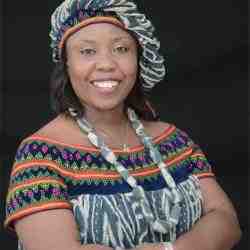Introduction
In order to create online child protection, Diena Haryana built a movement involving parents, teachers, communities, corporations, and other key stakeholders that protects, empowers, and nurtures children to become empathetic leaders.
The New Idea
The advancement of the digital era and social media have put children at risk of cyberbullying, online exploitation, and uncensored content consumption that needs to be tackled immediately. Diena believes that parents and educators are strategic stakeholders in addressing the root cause of the problem and, at the same time, give the most significant support to nurturing children to become intelligent users of online platforms. Diena believes that by instilling a digital parenting model, she can get parents to be more involved and responsible in guiding and protecting children online as well as build a more empowering and nurturing environment for the children. Through her organization, Semai Jiwa Amini (SEJIWA) Foundation, Diena is building a system and accountability measures to support child development and create an online child protection model by activating the stakeholders in the ecosystem.
Using her Good Parenting Model (GPM) concept, her Training of Trainers approach has successfully introduced a new way of parenting for parents and educators. Through the model, parents and educators can understand the three pillars to empower and nurture children, which are 1) Becoming a role model, 2) Effective communication, and 3) Empowering others. These three pillars result from the combination of her research, past experiences being raised by two parenting styles (Indonesia and the USA), and her expertise as an HR training consultant. The training emphasizes the value of reflection, connectedness with neurological science and cultural norms, and practical step-by-step how-tos. Joined by large numbers of committed parents and educators in Indonesia, the model encourages them to create a peer-to-peer community to empower each other and influence more new people to shift their cultural norms at home or in schools.
SEJIWA takes the initiative to play a significant role in the parenting world as the advisor and observer for each community, and content creator. When Diena realized how crucial online child protection was, she took the initiative to create a comprehensive strategy to raise the issue to the public and engage the key stakeholders to become players in the matter. Diena’s digital parenting model helps parents understand how to monitor their children using the internet, how to interact on social media, and the proportion of gadget time usage. It also intertwines with SEJIWA Program, so she can involve parents and teachers to learn about the model. Furthermore, she has created multiple interactive online education content and modules that can be accessed publicly and are easy to understand. To increase the model's exposure, SEJIWA, with the help of their community network and volunteer from various universities in Indonesia, publishes the material on social media such as TikTok, Instagram, and Facebook. Some of the content is powerful and went viral among parents in Indonesia.
To ensure everyone is involved in her movement, Diena is working directly with children, parents, teachers, and stakeholders to continuously bring the issue of online child protection to the media to get wider recognition from the public. She used the power of media and communities on the ground to push the government to add new reinforcements such as creating programs related to digital literacy and creating national regulations. Diena keeps advocating the issue to the government through the Ministry of Women Empowerment and Child Protection and the Ministry of Communication and Information Technology. In addition, to support the establishment at the grassroots level, she created a youth network in more than 11 cities in Indonesia as the local champions. She actively participates in the children protection coalition at national and regional organizations such as Indonesia Child Online Protection, National Movement on Digital Literacy, and Child Right Coalition Asia. As a result, in 2021, SEJIWA successfully launched five national programs related to online child protection, gadget addiction prevention, and optimized child potential which supported by 47 organization across Indonesia, the Ministry of Women Empowerment and Child Protection, the Ministry of Communication and Information Technology and more than 40 national and regional media outlets.
The Problem
The twenty-first century has seen online platforms go from a mere extension of physical communication to one that significantly transforms or replaces physical communication. The pandemic has also increased the presence of online platforms replacing face-to-face interaction in school and social life. This increasingly digital experience has also exposed children to more challenges. Globally, UNICEF reported that 1 out of 3 children in 30 countries, including Indonesia, face cyberbullying. In a recent study, UNICEF also found that 45% of 2777 Indonesians (aged 14-24) had experienced cyberbullying. Respondents specified that bullying usually happened through chatting applications (45%), through the unauthorized spread of personal photos/videos (41%), or other methods of harassment (14%). The Indonesia Internet Service Operator Association further added from their 2019 research that 49% of Internet users suffer from cyberbullying yet only 3.6% reported the incident to officials.
Young people are not only susceptible to bullying but also manipulation or grooming. Online grooming usually happens when there is an imbalance of power and manipulation of the vulnerable psychology of young people. WeProtect Global Alliance showed a 106% increase from 2019 to 2020 in reports regarding online sexual exploitation. Through their survey, the organization identified a more profound problem where around 57% of girls and 48% of boys from 5300 respondents (18-20 years old) who had regular Internet usage experienced online sexual harm at least once. Groomers often fake their identities through inconspicuous conversation with the children, communicating with the children through games, apps, and social media. Through their report, WeProtect also details several instances of grooming, such as requesting young people to keep their sexually explicit relationship with an adult a secret. This data shows how critical the problem is on online platforms, especially for children and teenagers. Despite the prevalent danger of many platforms, many young people in Indonesia depend on the Internet. Millennials, Generation Z, and Generation Alpha are digital natives. On the other hand, parents as their guardians often do not properly supervise due to limited time or lack of know-how on both issues such as grooming and the technology itself.
Protecting young people online is complicated by a third factor, which is Internet addiction. According to the Global Digital Report, in 2019 Indonesia was ranked fifth among countries with significant ‘Internet addiction’ rates. 19.3% of teenagers in 34 provinces in Indonesia are suffering from Internet addiction. 97% of children in Central Jakarta and Pandeglang have been exposed to pornographic content online, and 3.4% are reported as being addicted to online pornography. Yet despite these horrific facts and environment, there is still no safety net addressing online violence. There is also a legal vacuum of official law governing specific crimes targeting children online.
The Strategy
Diena successfully created an anti-bully system in schools by involving everyone in the movement. Her key to success was finding the root of the problem first, then mapping the key stakeholders for the movement and creating media and public engagement, along with advocacy efforts aimed at the government. These strategies were effective in tackling the issue of cyber-bullying including at the policy-making level. Now, Diena sees that the broader issue of online child protection is a vital issue for parents and educators in Indonesia, and a natural extension of SEJIWA’s work. She believes that it is time for SEJIWA to step up to the issue by replicating her strategies of the anti-bully system to the issue of online child protection.
The first challenge was how to make the parents and educators aware of and understand the larger problem. Diena deep dived into the characteristics of parents in the digital era. She collected data and research and concluded that three types of parents exist in the present time. Type one are parents with good digital skills and digital parenting where parents can be nurturing parents. They can guide, protect, and educate children properly. Type two are parents with good digital skills but who do not practice good digital parenting. This type of parent does not provide adequate guidance and protection to children in this digital era because they are busy with their own life and business. Type three are parents who lack both digital skills and digital parenting. This type of parent is unaware of digital technology and its benefits and challenges to their children. They are not capable of providing guidance and protection for their children. After she characterized these parenting types, she created a digital parenting module tailored for each specific type of parent. SEJIWA distributes it to its online platform, including its website and social media and SEJIWA offline program. The module is also used for the material of Training of Trainers (ToT) for parents and teachers, which SEJIWA regularly conducts with its network nationally. The ToT participants also become a proxy to share the module with other parents and teachers across Indonesia, especially ‘type three’ parents who may not have regular access to the internet. Currently, more than 6.5 million parents, teachers, and communities access the digital parenting module from SEJIWA.
Adapting to the outbreak of the COVID-19 pandemic, SEJIWA has now shifted its programming online. The new programming includes "Bincang SEJIWA," (SEJIWA Talk), which promotes the importance of character building for parents and children. This program invites community leaders and young changemakers to share their experiences. Diena believes that the presence of young changemakers can inspire not only the young generation but also the parents. Based on her observation, most family events and programs from government never involve children or youth as the subject, but when SEJIWA put young people as a subject, it significantly influenced parents. Young changemakers could voice their own opinions regarding the issue, giving parents new perspectives. This occasion is rarely happening because the culture of parenting in Indonesia is not to give room to children to speak up. Community leaders are also crucial to influencing people to get involved in SEJIWA’s program and strengthen the movement. Currently, SEJIWA has community networks in almost all regions in Indonesia. While they first helped SEJIWA to create the anti-bully system before, now they are committing to expand, creating online child protection. This is a huge advantage for SEJIWA, to already have connections on the ground. In early 2022, SEJIWA collaborated with PSIMAS, (a community of psychologists in Indonesia) to develop the Online Public Psychology Hotline Service for free. Working with 70 psychologists around the country who work pro bono, in less than six months, the hotline has helped almost 300 parents and teachers all over Indonesia.
Diena also collaborates with several organizations, communities, companies, psychologists, activists, and volunteers to design training programs on cyberbullying, digital parenting, and child protection. One of the programs is Smart School Online (SSO), which has reached several schools in 11 cities in Indonesia, with more than 60,000 participants including parents, teachers, and children. From 2019 to 2020, SEJIWA was also chosen by Google as their exclusive partner organization in Indonesia to run the smart school online. This collaboration continued in 2021 with the “Tangkas Berinternet” (Internet Agility) program to make children aware of internet risks and guide them on internet usage.
SEJIWA's engagement through social media, especially TikTok, significantly boosted its content exposure. Their content has received millions of views and more than 200,000 likes (which are still increasing daily). As TikTok is currently the most influential social media in Indonesia, this number shows that the content effectively gets people’s attention and a good sign that SEJIWA's strategy to spread digital parenting is working through social media. The key to an excellent number is consistency in producing the content. SEJIWA involves students who join its apprentice program to make content. The students successfully converted the digital parenting module into fun and compelling content that has become a powerful arsenal for SEJIWA to create awareness in society.
Together with ID-COP (Indonesian Child Online Protection), Diena is also pushing all social media platforms to create better user protection for children & teenagers. In 2021, Diena was involved as one of the 12 global figures to provide consultation to a study regarding Dangerous Challenges, Self-Harm and Suicide funded by TikTok. Following her involvement, SEJIWA becomes the partner organization in Indonesia to create campaigns on dealing with dangerous challenges on TikTok. The partnership with TikTok was a massive step for SEJIWA’s movement because Diena believes that social media will become a powerful weapon for her movement in the future. She plans to engage other social media platforms as well to implement her module.
Diena has been worked closely with the Indonesian government to design policies and laws related to non-violence and child protection since 2012 and has become one of the experts representing the public to give her thoughts and perspective on potential regulation. She was involved in two relevant laws that have been launched: Article 54, UU no. 35, 2014 on anti-violence against children around the school, and Permendikbud no. 18, 2016, on how student orientation must be implemented, banning all types of violence against children during student orientation. She still maintains a good relationship with the government and now plans to involve them step by step on online child protection issues. One of the examples is that SEJIWA has been supporting the Ministry of Women's Empowerment and Child Protection as well as the Ministry of Education and Culture in building capacities for national trainers to promote digital parenting in Indonesia. Diena is constantly moving her feet to other ministries to do the advocacy. Recently, together with ID-COP, Diena is creating the Child Protection Code of Conduct as a national guideline for all organizations that want to make a program involving children. Currently, the Indonesia National Commission of Child Protection has adopted the code of conduct into all of their programs involving children in Indonesia. In the future, she aims even higher which is to convince the government to create a policy for online child protection.
The Person
Growing up in the Province of Central Java, young Diena Haryana repeatedly experienced domestic violence. After the age of 5, she was raised not by her parents, but by an older relative. She was treated unkindly by her caretakers and assigned many household chores at such a young age. Starting from the age of 12, Diena was expected to work in the caregiver’s hair salon and received tips from customers that she used for her pocket money. At the age of 18, she had to pay for her expenses, including tuition for her university. She rarely received appropriate love and affection from this family. This affected her self-esteem, and she grew up as an introverted and quiet girl. Despite these hardships, Diena was a good student, and she was also awarded by American Field Service (AFS) a one-year exchange student program through a Study Abroad Scholarship to the United States. This experience was a turning point in her life. During her studies in the US, Diena lived with her foster family in the city of Georgetown, Delaware. Her foster mother was a psychologist who raised her children with love and tenderness. She always treated Diena like her own child. Her foster mother was always supportive of her and helped her learn many new things.
After returning from the United States, Diena re-discovered her self-confidence and had a fuller understanding of what healthy parenting should look like as modelled to her by her American foster mother. When Diena graduated from high school, she decided to leave her caregivers’ house and start a new life as an English teacher and studied English Language Teaching at Jakarta Teacher Training Institute (IKIP Jakarta.) In her second year of college, Diena developed a parenting pyramid inspired by her experience with her American foster mother. Diena then graduated from college with a bachelor's degree in education in 1982. Several years later, she received a Chevening Scholarship from the British Council to continue her studies for her master’s degree. During her studies, this model was revised and later applied to private sectors employees and then continuously used in her work in dealing with the issue of violence against children in Indonesia.
Before founding SEJIWA Foundation, Diena worked as a lecturer in her alma mater right after she graduated from her first degree, all the way even after she returned from her master’s degree in UK. She then formed Business Dynamics in 1993, a training and consulting company, serving national and international corporations and industries with her former British husband in 1993. Business Dynamics focused on developing leaders, managers, supervisors, and workers to create a positive work environment in order to improve productivity.
When Yayasan Semai Jiwa Amini (SEJIWA Foundation) was set up in 2004 as a non-profit foundation focused on child protection, Diena decided to leave her career in business and dedicate her time entirely to SEJIWA Foundation. For the future, Diena plans to continue her work supporting continuous progress by stakeholders through systemic organizational improvements allowing children to live with dignity and respect in nurturing and loving homes. From such a home environment, hopefully, empathic and serving leaders will emerge. Diena finds truth in this quote "it is better to light a candle than to curse the darkness." (Eleanor Roosevelt)




